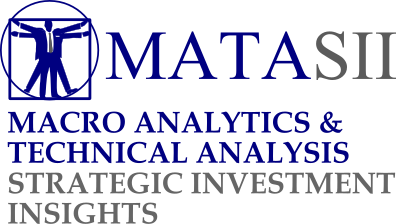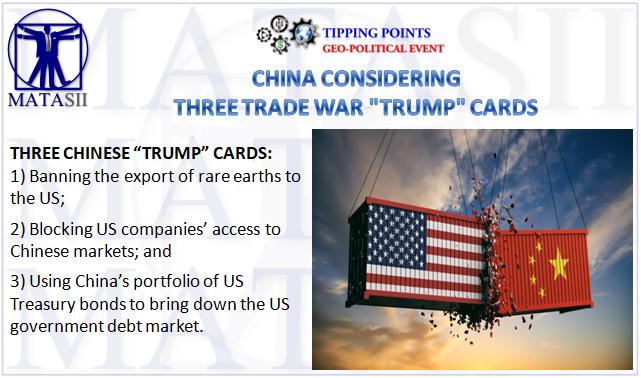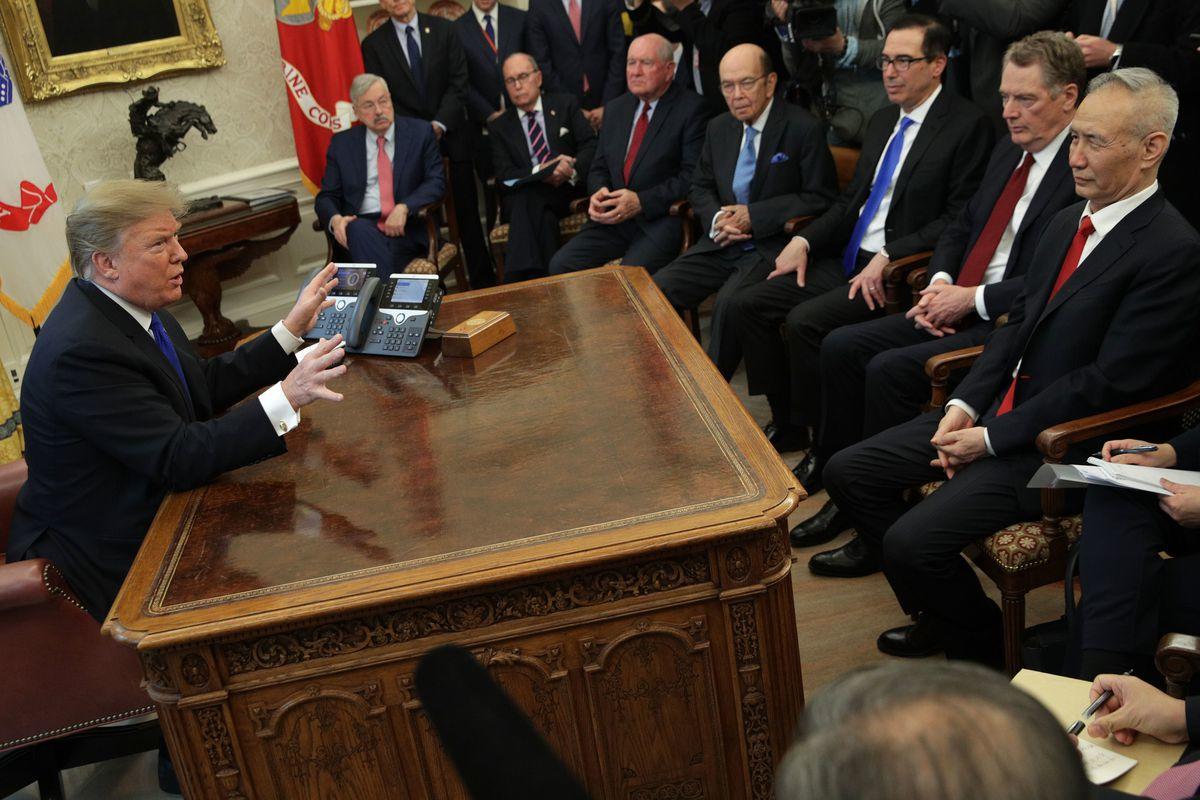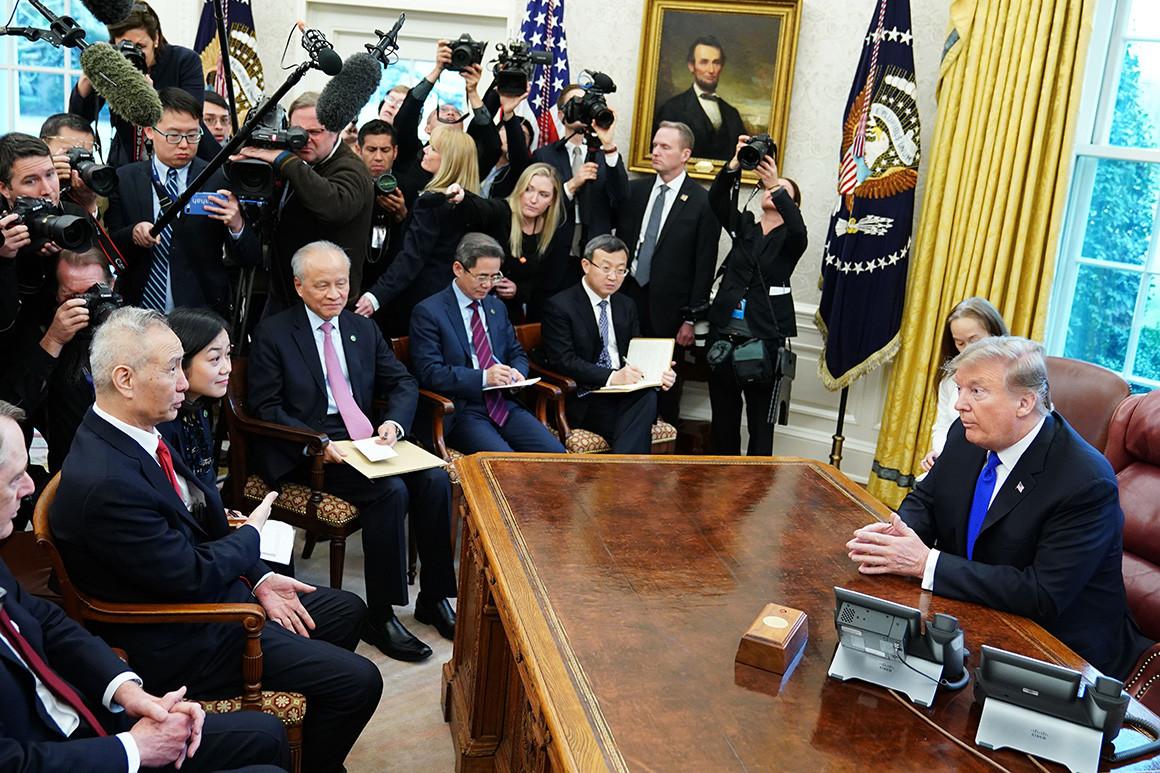CHINA CONSIDERING THREE TRADE WAR "TRUMP" CARDS
Tyler Durden summarizes the Chinese media reporting on what options China has to play on the escalating US-China trade war situation:
Amid the escalating economic war between the US and China, discussions have intensified on how Beijing might stand up to the economic power of America, especially given that the global economy is increasingly dependent on the US dollar as the main currency for international trade, and the closing of US markets could do some serious damage to China’s export-oriented companies. China’s main foreign-policy publication, the Global Times, points to three trump cards that Beijing could use to at least level the playing field in its fight with the Trump administration and cause appreciable harm to the US economy, possibly forcing its opponent to temporarily scale back its ambitions.
According to an article in the Global Times by a professor at the Renmin University of China, the three trump cards are:
1) Banning the export of rare earths to the US;
2) Blocking US companies’ access to Chinese markets; and
3) Using China’s portfolio of US Treasury bonds to bring down the US government debt market.
Each of these trump cards are worth looking at in detail, both in terms of their impact on the US economy and also in terms of any possible retaliation from the US and the repercussions for the global economy as a whole.
Banning the export of rare earths to the US would actually be a pretty serious blow for US electronics manufacturers and, indeed, US high-tech manufacturers generally. This is because rare earths are a key raw material for the production of smartphones, various chips, and other high-value-added products that are the biggest cash cows of US companies such as Apple and Boeing.
President Donald Trump during a meeting with Chinese Vice Premier Liu He over trade talks in the Oval Office, February 22, 2019
Reuters, an agency one could hardly accuse of sympathising with Beijing, reports: “The United States has again decided not to impose tariffs on rare earths and other critical minerals from China, underscoring its reliance on the Asian nation for a group of materials used in everything from consumer electronics to military equipment.”
China does not exactly have a monopoly on such materials, but the market would definitely be in short supply without Chinese exports, with all the price implications that would bring. Moreover, it is likely that some deficit positions will be impossible to close no matter how much money is involved.
Not everything is that simple, however. Should such a ban be introduced, then Beijing will encounter certain technical difficulties. If sanctions are only imposed on US companies, then they will still be able to purchase the necessary materials through Japanese or European straw buyers, making the embargo pointless. But if China imposes a total export ban, then it won’t just be US companies that suffer but European ones as well, leading to EU reprisals against Chinese exporters to Europe. This would be very painful for China, especially given the economic war with the US that is making access to European markets invaluable to the Chinese economy.
It appears that a ban on rare earth exports is a powerful weapon, but its use will require the utmost delicacy and serious diplomatic efforts to avoid any extremely unpleasant side effects.
The second trump card mentioned by the Global Times is blocking US companies’ access to the fast-growing and extensive Chinese market. This should be looked at from a political, rather than economic, point of view (although the latter may seem logical). The aim of such restrictive measures is not to inflict unacceptable damage on the US economy, but to make the full might of America’s corporate lobbying machine work against Donald Trump and support his political opponents.
According to the S&P Dow Jones Indices, Asia only accounts for around 14 per cent of the sales of S&P 500 companies. If we assume that China makes up the majority of this, then not even a complete closure of the Chinese markets would be a disaster. There are a few important details, however.
- First, China is the only (and final) market for sales growth for many US companies. So if China closes, the graphs at business presentations won’t be showing any kind of growth.
- Second, China plays a key role in many production chains that end with sales in the US and other markets. A loss of access to Chinese production would therefore severely damage the competitiveness of American companies on the world (and even on the US) market, especially if their European and Japanese competitors retain complete access to China’s production facilities.
As a result, the profits of US companies and the future of the American stock market (which is a key political barometer given that many Americans have invested their savings in shares) would be at risk. It might be possible to offset these problems by transferring production to other Asian countries with cheap labour and favourable terms, but this couldn’t be done quickly and it would be risky, given that Trump is waging trade wars with everyone from the European Union to loyal US allies such as Japan and India. In light of this, US companies will have a huge incentive to prevent Trump from being elected for a second term, and the lobbying and political capabilities of that part of the US corporate sector that will suffer the most from this trump card could really play a key role in the political victory of Trump’s opponents.
The third trump card involves China dumping its portfolio of US Treasury bonds. The Global Times writes: “China holds more than $1 trillion of US Treasury bonds. China made a great contribution to stabilizing the US economy by buying US debt during the financial crisis in 2008. The US would be miserable if China hits it when it is down.” One can conclude from this that Beijing will most probably save dumping its portfolio of US treasury bonds for dessert – in that it will have the biggest impact when the US stock market is experiencing its next crisis.
China’s Vice Premier Liu He (left) speaks during a meeting with President Donald Trump (right) in the Oval Office of the White House on February 22, 2019
The move is not likely to cause catastrophic damage in and of itself (although the value of US bonds will definitely fall), but if it is done at the moment when America is most vulnerable, then China’s portfolio may well end up being the straw that breaks the camel’s back.
Beijing is not displaying a particularly cocksure attitude. As the Global Times’ editor-in-chief quite rightly notes on Twitter:
“Most Chinese agree that the US is more powerful than China and Washington holds initiative in the trade war. But we just don’t want to cave in and we believe there is no way the US can crush China. We are willing to bear some pain to give the US a lesson.”
As China lays its trump cards on the table, the world’s globalised economy will creak and collapse.Globalisation is going backwards, and chances are we’ll end up with a completely different economic system that has more protectionism. Instead of a global market, there will be several large regional markets with their own rules, dominant currencies, technical standards, and financial systems.
[SITE INDEX -- TIPPING POINTS - GLOBAL GOVERNANCE FAILURE]
A PUBLIC SOURCED ARTICLE FOR MATASII
READERS REFERENCE: (SUBSCRIBERS & PUBLIC ACCESS)
MATASII RESEARCH ANALYSIS & SYNTHESIS WAS SOURCED FROM:
SOURCE: 05-28-19 - Oriental Review - "Global Times: China Holds Three Trump Cards In War Against US"
FAIR USE NOTICE This site contains copyrighted material the use of which has not always been specifically authorized by the copyright owner. We are making such material available in our efforts to advance understanding of environmental, political, human rights, economic, democracy, scientific, and social justice issues, etc. We believe this constitutes a 'fair use' of any such copyrighted material as provided for in section 107 of the US Copyright Law. In accordance with Title 17 U.S.C. Section 107, the material on this site is distributed without profit to those who have expressed a prior interest in receiving the included information for research and educational purposes. If you wish to use copyrighted material from this site for purposes of your own that go beyond 'fair use', you must obtain permission from the copyright owner.
NOTICE Information on these pages contains forward-looking statements that involve risks and uncertainties. Markets and instruments profiled on this page are for informational purposes only and should not in any way come across as a recommendation to buy or sell in these assets. You should do your own thorough research before making any investment decisions. MATASII.com does not in any way guarantee that this information is free from mistakes, errors, or material misstatements. It also does not guarantee that this information is of a timely nature. Investing in Open Markets involves a great deal of risk, including the loss of all or a portion of your investment, as well as emotional distress. All risks, losses and costs associated with investing, including total loss of principal, are your responsibility.




